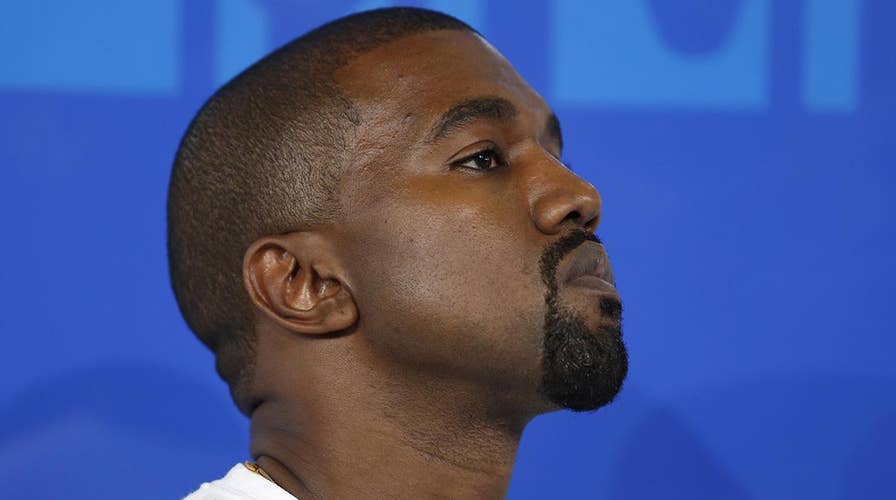Kanye West causes controversy over slavery comments on TMZ
Kanye West calls 400-years of slavery 'a choice' after expressing support for President Trump; Adam Housley reports from Los Angeles.
A Detroit radio station said it will ban Kanye West's music over controversial comments the rapper made earlier this week that slavery “was a choice.”
Hosts Shay Shay and BiGG of 105.1 the Morning Bounce made the announcement Thursday on Facebook with the hashtag “Mute Kanye.”
“Kanye has gone too far” with his latest comments, they said. They wrote that they are refusing to give him a platform,” according to New York Post.
"We don't want to hear Kanye's music, we don't want to play Kanye on our show, we don't want to talk about Kanye anymore,” the post read. “So we are taking a stand and we aren't playing his music anymore; we just are refusing to give him a platform."
The ban will be for the entire hip-hop station and will include tracks that West produced or is featured in as well, the Detroit Free Press reported.
West faced swift backlash following an interview with TMZ on Tuesday, where he said "when you hear about slavery for 400 years. For 400 years?! That sounds like a choice."
The music mogul took to Twitter shortly after to try and walk back his comments and compared himself to both Nat Turner and Harriet Tubman.
"when you hear about slavery for 400 years. For 400 years?! That sounds like a choice."
“If this was 148 years ago I would have been more like Harriet or Nat," West tweeted, before clarifying the reason he “brought up the 400 years point is because we can’t be mentally imprisoned for another 400 years. We need free thought now. Even the statement was an example of free thought…It was just an idea.”
The two morning DJs didn’t announce how long the ban will last, and left it open to a “gut feeling.”
“That’s what it is right now. We need a break,” Shay Shay, told the paper. “I think it’s a gut feeling of when we’ll be able to feel comfortable playing it again, when we’ll want to hear it again, and more importantly, when will our listeners want to hear it again.”
West was banned from a Hot 103.5 in Sacramento in 2016 after he attacked radio stations and fellow artists during a concert for his Saint Pablo Tour, USA Today reported.






















